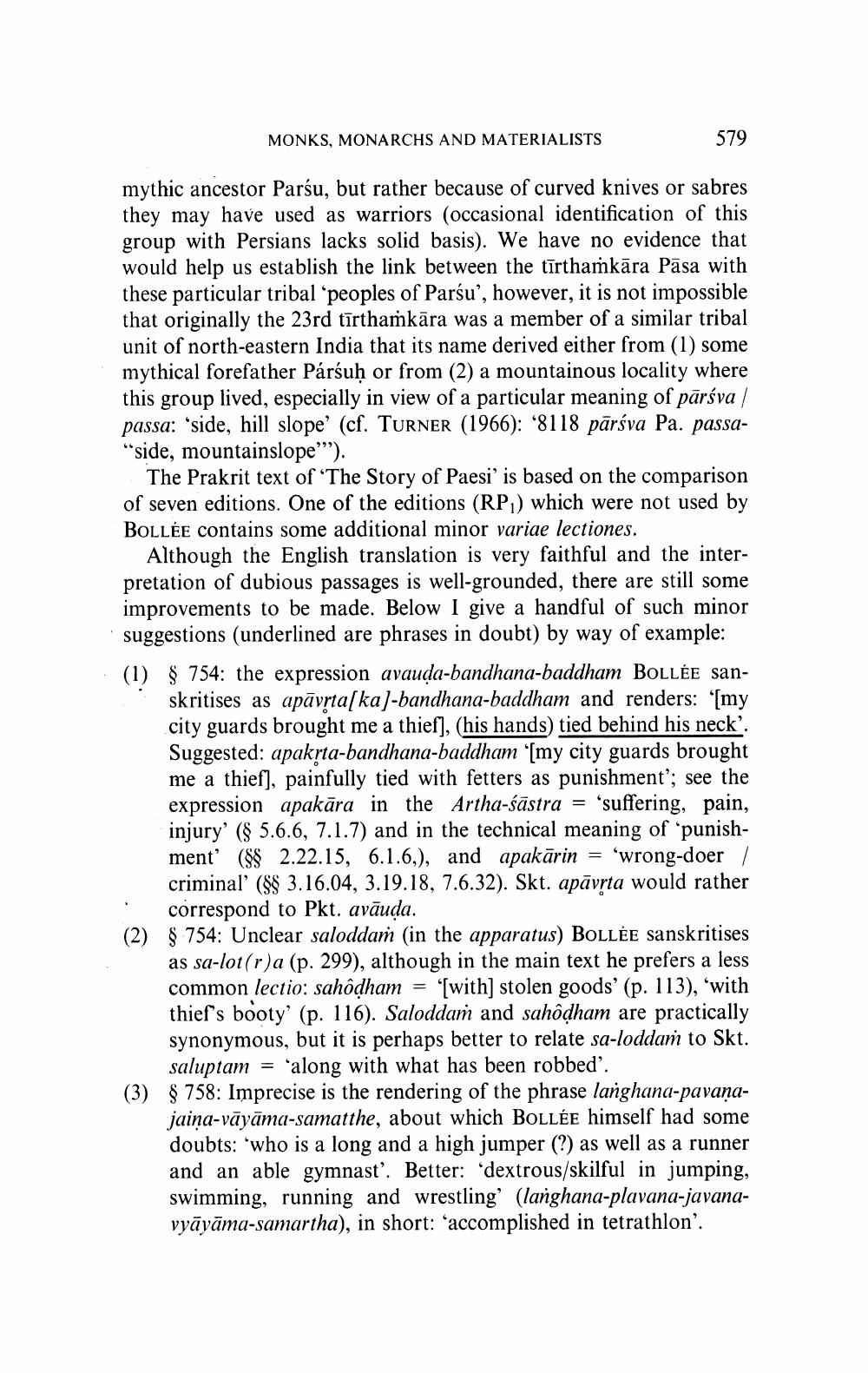Book Title: Monks Monarchs And Materialists Author(s): Piotr Balcerowicz Publisher: Piotr Balcerowicz View full book textPage 9
________________ MONKS, MONARCHS AND MATERIALISTS 579 mythic ancestor Paršu, but rather because of curved knives or sabres they may have used as warriors (occasional identification of this group with Persians lacks solid basis). We have no evidence that would help us establish the link between the tīrthaṁkāra Pāsa with these particular tribal “peoples of Parsu', however, it is not impossible that originally the 23rd tīrthamkāra was a member of a similar tribal unit of north-eastern India that its name derived either from (1) some mythical forefather Páráuh or from (2) a mountainous locality where this group lived, especially in view of a particular meaning of pārsva/ passa: 'side, hill slope' (cf. TURNER (1966): '8118 pārśva Pa. passa"side, mountainslope"). The Prakrit text of 'The Story of Paesi’ is based on the comparison of seven editions. One of the editions (RP) which were not used by BOLLÉE contains some additional minor variae lectiones. Although the English translation is very faithful and the interpretation of dubious passages is well-grounded, there are still some improvements to be made. Below I give a handful of such minor suggestions (underlined are phrases in doubt) by way of example: (1) $ 754: the expression avauda-bandhana-baddham BOLLÉE san skritises as apāvrta/ka)-bandhana-baddham and renders: "smy city guards brought me a thief], (his hands) tied behind his neck”. Suggested: apakrta-bandhana-baddham "smy city guards brought me a thief], painfully tied with fetters as punishment'; see the expression apakāra in the Artha-śāstra = 'suffering, pain, injury' (8 5.6.6, 7.1.7) and in the technical meaning of 'punishment' (SS 2.22.15, 6.1.6,), and apakārin = 'wrong-doer / criminal' (88 3.16.04, 3.19.18, 7.6.32). Skt. apāvrta would rather correspond to Pkt. avāuda. $ 754: Unclear saloddam (in the apparatus) BOLLÉE sanskritises as sa-lot(r)a (p. 299), although in the main text he prefers a less common lectio: sahôdham = "[with] stolen goods' (p. 113), 'with thief's booty' (p. 116). Saloddam and sahôdham are practically synonymous, but it is perhaps better to relate sa-loddam to Skt. saluptam = `along with what has been robbed'. (3) $758: Imprecise is the rendering of the phrase langhana-pavaņa jaina-vāyāma-samatthe, about which Bollée himself had some doubts: 'who is a long and a high jumper (?) as well as a runner and an able gymnast. Better: dextrous/skilful in jumping, swimming, running and wrestling (langhana-plavana-javanavyāyāma-samartha), in short: 'accomplished in tetrathlon'.Page Navigation
1 ... 7 8 9 10 11 12
